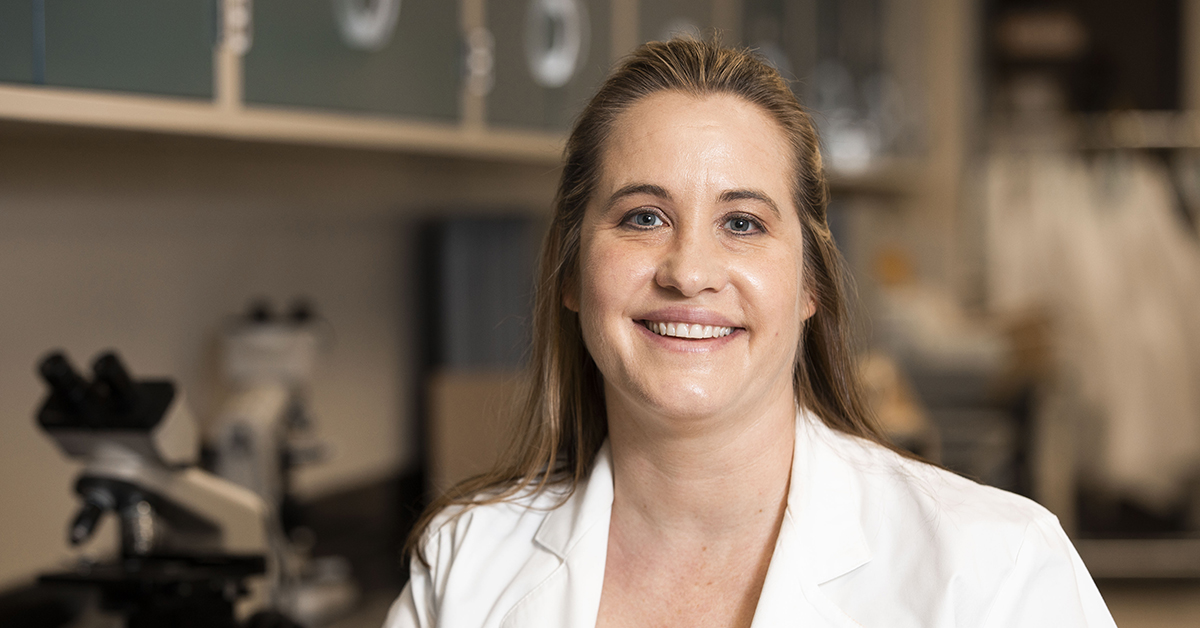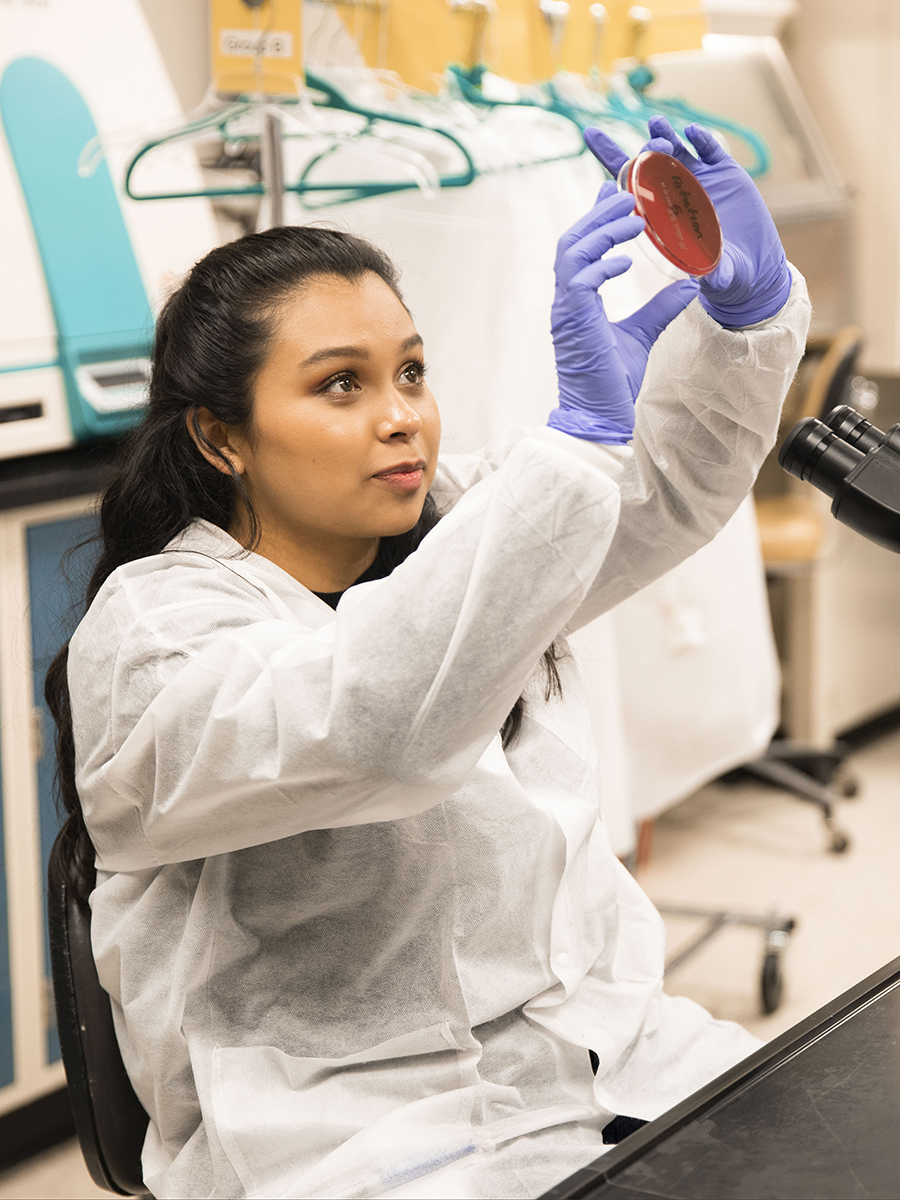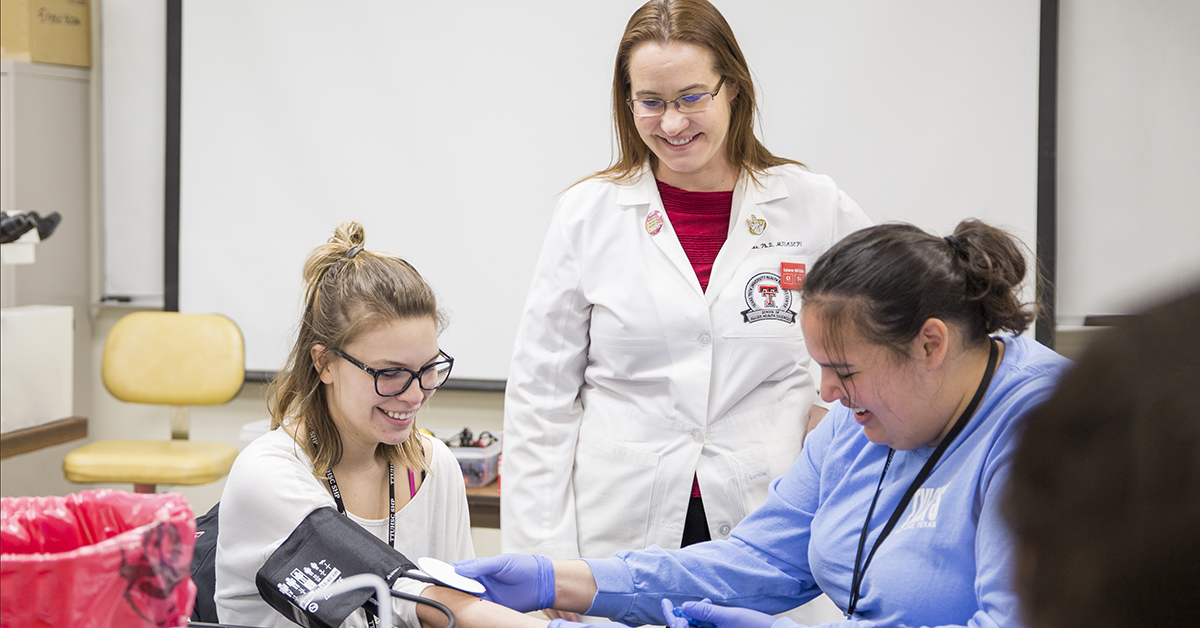Saving Lives Behind the Scenes

“I chose Clinical Laboratory Science because I have a passion for medical science and I simply love working in the lab.” -Tammy Carter, Ph.D.
With any visit to the hospital, patients interact with physicians, nurses and many
other health care professionals. Behind the scenes of any hospital scene, clinical
laboratory scientists also provide essential life-saving discoveries that directly
impact the diagnosis, treatment and care of a patient.
“Clinical Laboratory Science is an exciting field that allows an individual to apply
their knowledge and lab skills while positively affecting patient care,” said Tammy
Carter, Ph.D., program director for Clinical Laboratory Sciences (CLS). “I chose Clinical
Laboratory Science because I have a passion for medical science and I simply love
working in the lab.”

Clinical Laboratory Scientists provide 70 percent of the critical information for diagnosis, treatment and preventative care.
Clinical laboratory scientists provide 70 percent of the critical information required
for diagnosis, treatment and preventative care. This is essential for assessing patient
health and identifying severe diseases.
Through complex instrumentation, sophisticated techniques and specialized knowledge,
scientists analyze body specimens such as tissues and fluids.
“As technology advances to improve health care, the laboratory sciences advance as
well. We are on the cutting edge of diagnostic medicine and are continually improving
our techniques and skills with each new medical development. Laboratory professionals
are key members of the health care team and play a vital role in assuring quality
health care to the public,” Carter explained.
Students in TTUHSC Clinical Laboratory Sciences prepare for positions in clinical labs through education and hands-on training which includes state-of-the-art instrumentation and technology.
“Students of the program have obtained jobs in the following areas: medical technologists, scientists, laboratory management, sales representatives (biotechnology), field applications specialists, technology support and research and development. We have also had students that have gone on to be successful in careers as physicians, physician assistants, pharmacists and dentists,” said Carter.

CLS students can go on to careers in clinical labs (either hospital or reference labs), research labs, industry and forensics.
Those who complete their degrees go on to careers in clinical labs (either hospital or reference labs), research labs, industry and forensics. For TTUHSC School of Health Professions CLS students, the CLS program opens the door to many different fields in research and health care.
For more information about TTUHSC School of Health Professions Clinical Laboratory Sciences please visit: https://www.ttuhsc.edu/health-professions clinical-laboratory-science/
Related Stories
Celebrating Veterans: TTUHSC’s General Martin Clay’s Legacy of Service and Leadership
From his initial enlistment in the Army National Guard 36 years ago to his leadership in military and civilian health care management roles, Major General Martin Clay’s career has been shaped by adaptability, mission focus and service to others.
Texas Tech University Health Sciences Center School of Nursing Named Best Accelerated Bachelor of Science in Nursing Program in Texas
The TTUHSC School of Nursing Accelerated Bachelor of Science in Nursing (BSN) program has been ranked the No. 1 accelerated nursing program in Texas by RegisteredNursing.org.
TTUHSC Names New Regional Dean for the School of Nursing
Louise Rice, DNP, RN, has been named regional dean of the TTUHSC School of Nursing on the Amarillo campus.
Recent Stories
The John Wayne Cancer Foundation Surgical Oncology Fellowship Program at Texas Tech University Health Sciences Center Announced
TTUHSC is collaborating with the John Wayne Cancer Foundation and has established the Big Cure Endowment, which supports the university’s efforts to reduce cancer incidence and increase survivability of people in rural and underserved areas.
TTUHSC Receives $1 Million Gift from Amarillo National Bank to Expand and Enhance Pediatric Care in the Panhandle
TTUHSC School of Medicine leaders accepted a $1 million philanthropic gift from Amarillo National Bank on Tuesday (Feb. 10), marking a transformational investment in pediatric care for the Texas Panhandle.
Texas Tech University Health Sciences Center Permian Basin Announces Pediatric Residency Program Gift
TTUHSC Permian Basin, along with the Permian Strategic Partnership and the Scharbauer Foundation, Feb. 5 announced a gift that will fund a new pediatric residency.
